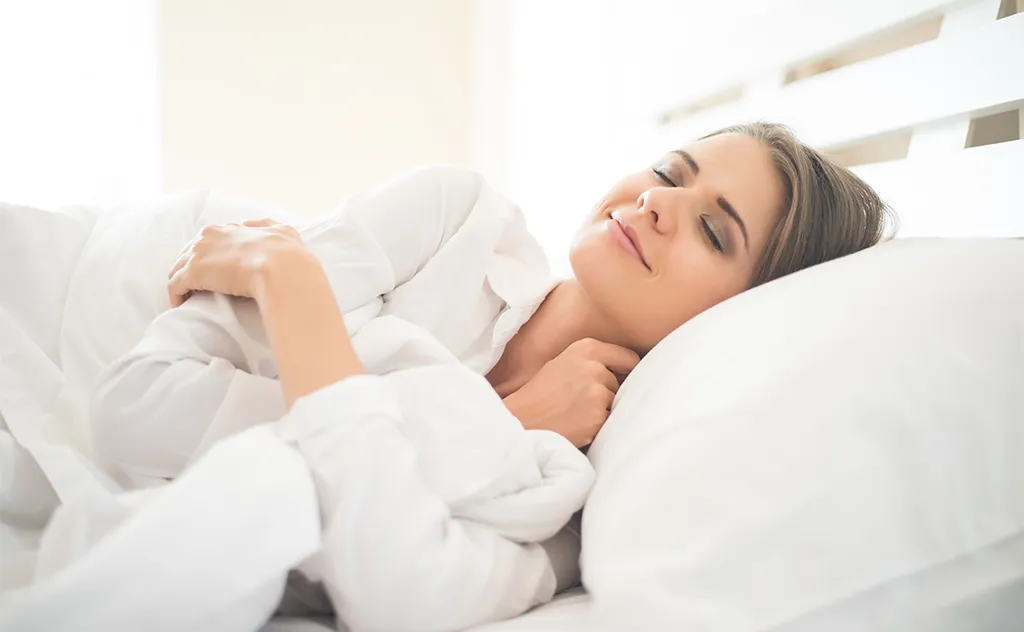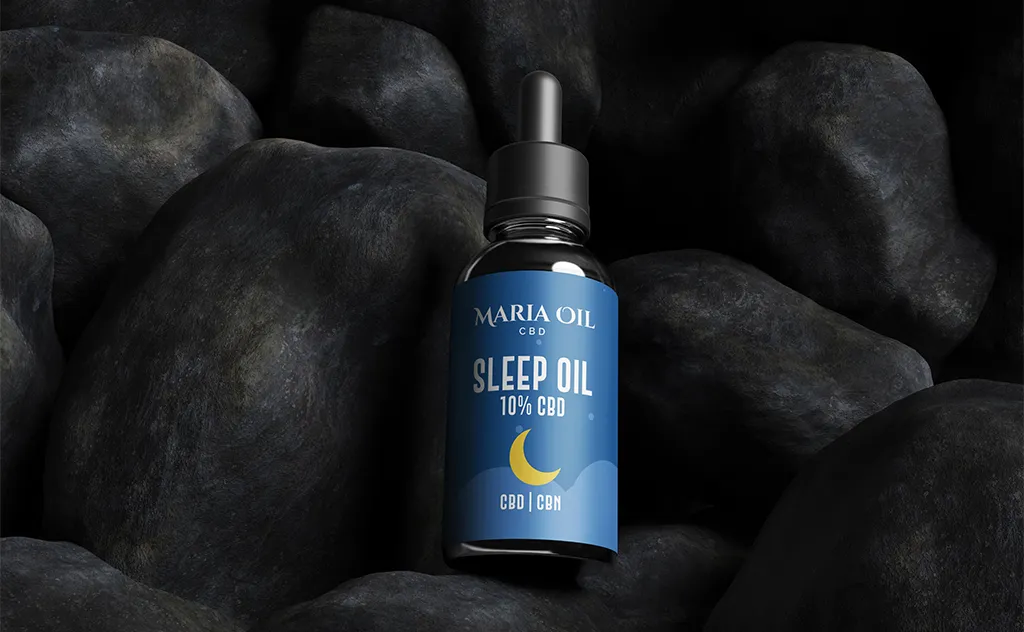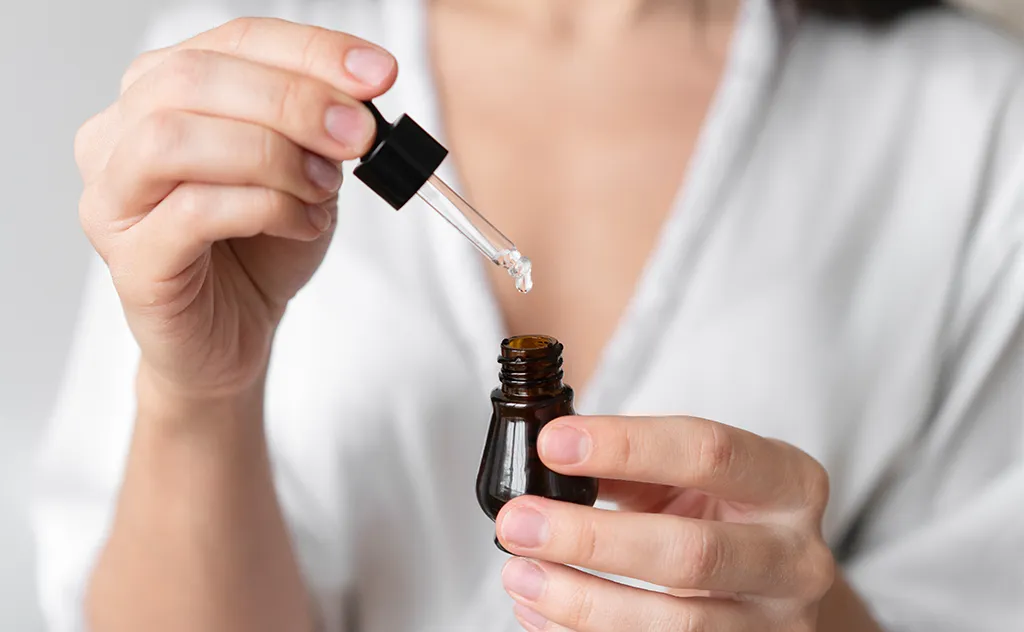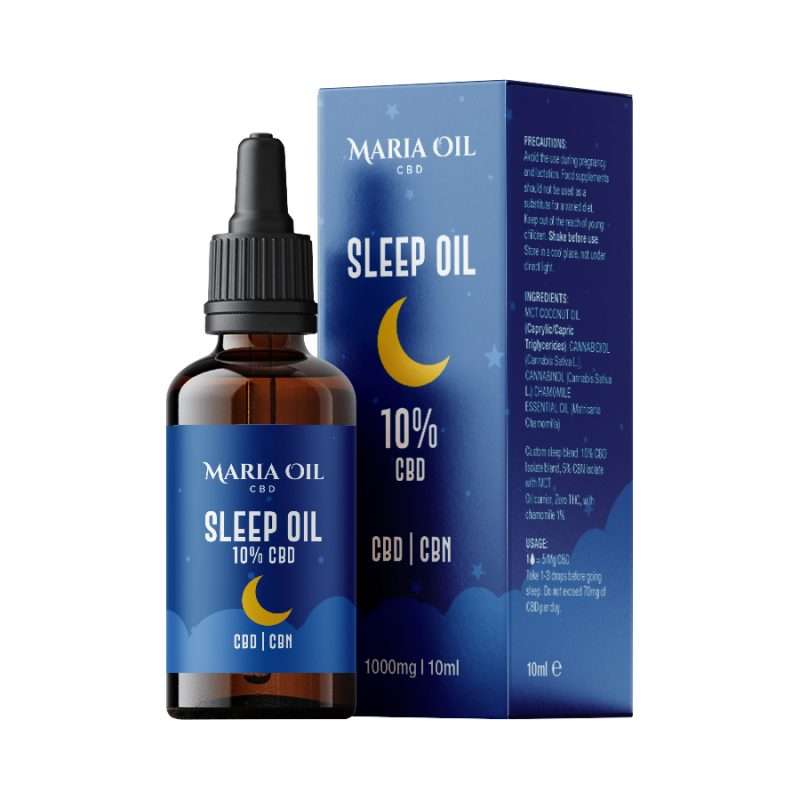In the hectic pace of modern life, more and more people are facing a common challenge: insomnia. Sleep, essential for our physical and mental well-being, often eludes many, leaving behind a trail of tiredness, stress and daily difficulties.
Insomnia can negatively affect every aspect of life, undermining concentration, productivity and, ultimately, the overall quality of life. Not only does one live poorly at night, but one struggles to cope with the day and contact with others.
Resorting to sleep medications is a common route, although they often do not solve the problem in the long run and can lead to side effects. For this reason, more and more people are trying to combat insomnia with natural methods.
In the vastness of nature, there are precious resources that can offer gentle relief without the side effects often associated with laboratory drugs. Drops to sleep emerge as an intriguing prospect in the search for softer, more harmonious solutions.
In this article, we want to explore the world of natural drops to sleep, examining how these remedies can offer a natural and gentle way to deal with insomnia. Each of them encapsulates the healing power of nature, offering a customised approach to restorative sleep.We will discover how these drops, derived from herbs, flowers and other natural resources, can be integrated into the daily routine to promote relaxation and induce deep, restful sleep.
Sleep Oil – Sleep Solution
Discover our Sleep Oil, Maria CBD Oil’s Sleep Solution, the innovative natural solution to improve sleep. With 10% CBD, 5% CBN and the addition of chamomile, this Full Spectrum formulation is designed to promote a deep and relaxing nighttime sleep. Our melatonin-free oils enhance a regular sleep, helping you wake up every morning feeling refreshed…
How many hours is it right to sleep to feel rested?
The amount of sleep needed can vary from person to person and depends on several factors including age, lifestyle, general health and individual needs. It would be wrong to assume that there is a sufficient amount of hours for everyone.
However, there are general guidelines recommended by sleep experts and health organisations.
Here are the general recommendations for the different age groups:
- Infants (0-3 months): 14-17 hours per day;
- Pre-school age (1-2 years): 11-14 hours per day;
- School age (3-5 years): 10-13 hours per day;
- School-age children (6-13 years): 9-11 hours per day;
- Teenagers (14-17 years): 8-10 hours per day;
- Adults (18-64 years): 7-9 hours per day;
- Elderly (65 years and over): 7-8 hours per day.
It is important to note that these are general recommendations and what matters most is how you feel during the day.
Some people may feel rested with fewer hours of sleep, while others may need a longer period. Also important is the quality of sleep, which depends on factors such as the comfort of the bed, the surrounding environment and the adoption of good habits.
Listening to your body is crucial: if you feel rested and full of energy during the day, you are probably getting the right amount of sleep. Conversely, if you feel persistent tiredness, you may need to adjust the duration or quality of sleep.
Causes and effects of insomnia
Insomnia is a disorder characterised by difficulty in initiating or maintaining sleep, or by unsatisfactory rest, despite adequate opportunities to sleep.
Causes of insomnia include:
- Stress and anxiety: daily worries, apprehension or thoughts related to work, relationships or other aspects of life can interfere with the ability to relax and fall asleep;
- Medical conditions: health problems such as chronic pain, sleep apnoea, arthritis or other physical disorders may contribute to insomnia due to the discomfort experienced;
- Mental disorders: conditions such as depression and anxiety disorders can deprive one of the desire to sleep;
- Bad sleeping habits: inappropriate behaviour before bedtime, such as excessive use of electronic devices or caffeine intake, can impede sleep, as can having very irregular hours;
- Environmental changes: frequent travel across different time zones or changes in living conditions can disturb the natural circadian rhythm.
Let us now look at the effects of insomnia:
- Fatigue and daytime sleepiness: lack of sleep can lead to lack of energy during the day, impairing performance;
- Mood alteration: insomnia can increase the risk of irritability, anxiety and depression;
- Memory and concentration problems: sleep is essential for memory consolidation and the ability to concentrate, while insomnia can hinder both;
- Risk of psychological disorders: the persistence of insomnia may increase the risk of developing long-term disorders, which go far beyond simple irritability;
- Impact on physical health: insomnia is associated with a number of problems including increased risk of heart disease, diabetes and obesity;
- Reduced quality of life: the sum of these effects can lead to perennial discouragement and discontent.
Managing insomnia often involves identifying and addressing the underlying causes, as well as developing good practices.

How to get a good night’s sleep?
Before moving on to the actual remedies, then to talk about drops to sleep, prepare the ground for a good night’s sleep. The cure is in fact never just one, but a set of good practices.
To get a good night’s sleep, it is important to adopt healthy habits and create an environment conducive to rest.
Let’s look at some practical tips to get started today:
- Establish a sleep routine: create a relaxing evening routine before bedtime to signal to your body that it is time to sleep (e.g. read, listen to music, meditate);
- Create a comfortable environment: make sure your bedroom is dark, quiet and a mild temperature, use blackout curtains and consider using earplugs to reduce noise;
- Limit exposure to blue light: reduce the use of electronic devices, such as smartphones and computers, at least one hour before bedtime, the blue light emitted by these devices can interfere with melatonin production, possibly during the night do not keep them in the same room as you sleep;
- Avoid stimulating foods and drinks: limit your intake of caffeine and nicotine in the hours before sleep, just as you should avoid heavy meals shortly before bedtime;
- Take regular exercise: regular exercise can promote sleep, but try to avoid intense activity in the hours before bedtime;
- Limit daytime naps: if you feel the need to rest during the day, try not to overdo it, 45 minutes is already a good time.
Remember that constancy is the key to success. Besides all this, there are natural remedies such as drops to sleep.
The best natural drops to sleep?
After preparing the ground for a restful sleep, it is time to find out how nature can help you complete the task and finally enjoy the night with various remedies against insomnia.We discover together the most popular drops to sleep on the market.
CBD
CBD, or cannabidiol, is a natural cannabinoid that is extracted from the cannabis plant. It is one of the most common cannabinoids and does not have psychoactive effects like THC, another well-known but also much discussed cannabinoid. These cannabinoids, combined with other natural substances produced by the plant, are used in many products, including hemp oil for insomnia.
Cannabidiol acts on a number of receptors and molecules in the body, including the endocannabinoid system, the central nervous system, and the immune system. By interacting with the endocannabinoid system, it can reduce anxiety and stress, regularise the heart rate, and promote relaxation. Already working on these levels it promotes tranquillity, which is the basis of good sleep.
Studies have also shown cannabidiol to be useful for sleep because it reduces nocturnal awakenings and improves the quality of REM sleep. REM sleep is the heavy sleep in which it is more difficult to wake up accidentally. Slipping quickly into this slightly deeper sleep allows you to rest better and wake up with more energy.
In particular, scientists have tested the efficacy of CBD sleep drops, especially when taken sublingually, which proved to be more effective than other types of products. They are classified as strong sleep drops, more so than the other remedies we have seen so far.
Sleep Oil – Sleep Solution
Discover our Sleep Oil, Maria CBD Oil’s Sleep Solution, the innovative natural solution to improve sleep. With 10% CBD, 5% CBN and the addition of chamomile, this Full Spectrum formulation is designed to promote a deep and relaxing nighttime sleep. Our melatonin-free oils enhance a regular sleep, helping you wake up every morning feeling refreshed…
Chamomile
Let’s start with the best-known remedy for insomnia. The camomile plant, belonging to the Asteraceae family, contains compounds such as apigenin, known for their calming and sedative properties.
Let’s look at the properties of camomile:
- Calming effects;
- Reduction of anxiety;
- Promotion of muscle relaxation;
- Alleviation of digestive problems;
- Creating a relaxing routine before going to bed;
- Alternative to soporific drugs.
You can experience the benefits of chamomile by drinking a cup of chamomile tea before going to bed or by using drops of chamomile extract.
Make sure you follow the dosage directions and consult a health professional before using camomile in concentrated form, especially if you are already taking medication or have preexisting medical conditions. If you get the dosage wrong, you may get the opposite effect, i.e. excitement.
Valerian
Valerian is a medicinal plant that has been used for centuries for its sedative and calming properties. It is one of the most popular natural sleeping remedies and can be effective in reducing the time it takes to fall asleep and improving sleep quality.
Valerian contains a number of active ingredients, including valepotriates, which have a sedative effect on the central nervous system. Valepotriates act by increasing levels of GABA, a neurotransmitter that plays an important role in sleep regulation.
The recommended dose of valerian for insomnia is 300-600 mg of whole root extract, taken 2-3 hours before bedtime. It is important to start with a low dose and gradually increase until the desired effect is achieved. You can find it in the form of sleeping drops for adults, so it is easier to calculate the dosage.
Valerian is generally well tolerated, but in some cases it can cause side effects such as drowsiness, nausea, headaches and dizziness. This is why it is important to start with a small dose and then possibly increase it.
The results of some studies have shown that valerian can begin to take effect within 30 minutes of intake. However, to obtain the full benefits, it is necessary to take it regularly for at least 2-4 weeks.
Passionflower
Passionflower contains a number of active ingredients, including flavonoids and alkaloids, which have a sedative effect on the central nervous system.
Flavonoids act by increasing levels of GABA, a neurotransmitter that plays an important role in sleep regulation. Alkaloids, on the other hand, have an antispasmodic effect, which can help reduce anxiety and stress, which are often factors contributing to insomnia.
The dose for treating insomnia is 200-400 mg of dry extract, taken 2-3 hours before going to bed. If you want the full effect, you should avoid taking passionflower together with other medications or supplements that may cause drowsiness.
Passion flower and valerian are two similar medicinal plants that are used to treat insomnia. Both have a sedative effect on the central nervous system, but have slightly different mechanisms of action. In general, passion flower is considered milder than valerian and is less likely to cause side effects.
Lavender
Lavender is an aromatic plant that has been used for centuries for its relaxing and calming properties.
In particular, lavender essential oil works in a similar way to passion flower, as it contains chemicals that have a sedative effect on the central nervous system, increasing GABA levels.
There are many ways to use lavender for sleep:
- Add a few drops of lavender essential oil to a diffuser and switch it on before going to bed;
- Apply a few drops of lavender essential oil to the middle part of the soles of the feet and massage for a few minutes;
- Take a warm bath with a tablespoon of essential oil;
- Put a few drops of essential oil on pillows or bed linen.
It is an almost side-effect-free remedy that shows benefits through constant use over time.
Melissa
Lemon balm is an herbaceous perennial plant in the Lamiaceae family. It is native to southern Europe and western Asia, but is now cultivated all over the world.
Lemon balm is known for its sedative and calming properties. It is an effective natural remedy for insomnia, and can also be useful for reducing anxiety and stress.
It contains several active ingredients:
- Linalool: which has a relaxing and calming effect;
- Geraniol: with sedative properties;
- Flavonoids: plant compounds that have an antioxidant and anti-inflammatory effect.
Lemon balm can be taken in various ways to improve sleep:
- Infusion: boil a cup of water and add 1-2 teaspoons of dried lemon balm leaves, leave to infuse for 5-10 minutes, strain and drink before going to bed;
- Extract: Take 200-400 mg of lemon balm extract daily, 2-3 hours before bedtime;
- Essential oil: add 2-3 drops of lemon balm essential oil to an essential oil diffuser and switch it on before going to bed.
As with all other natural remedies, it is generally well tolerated and free of serious side effects.

Good habits for quality sleep
As we said, quality sleep is often the result of a combination of daily practices that promote an environment conducive to rest.
Maintaining a regular routine, trying to go to bed and waking up at the same time every day, is essential to infuse your body with a certain rhythm. Even at the weekend, try to avoid the early hours and you will immediately feel more balanced.
Arrange in a good mattress and pillows to promote correct posture and avoid any kind of exciting substances.
Before going to bed, if you want to make sure you relax completely, practice techniques such as meditation, deep breathing or yoga.
Remember that sleep is a complex process involving multiple factors and a holistic approach is often necessary to achieve quality rest. Always consult a health professional before starting any regimen, even if it involves natural solutions such as sleeping drops, to ensure they are suitable for your individual needs.
With the right combination of healthy habits and natural support, you can work towards a restful and rejuvenating sleep.
 Contact us
Contact us 








